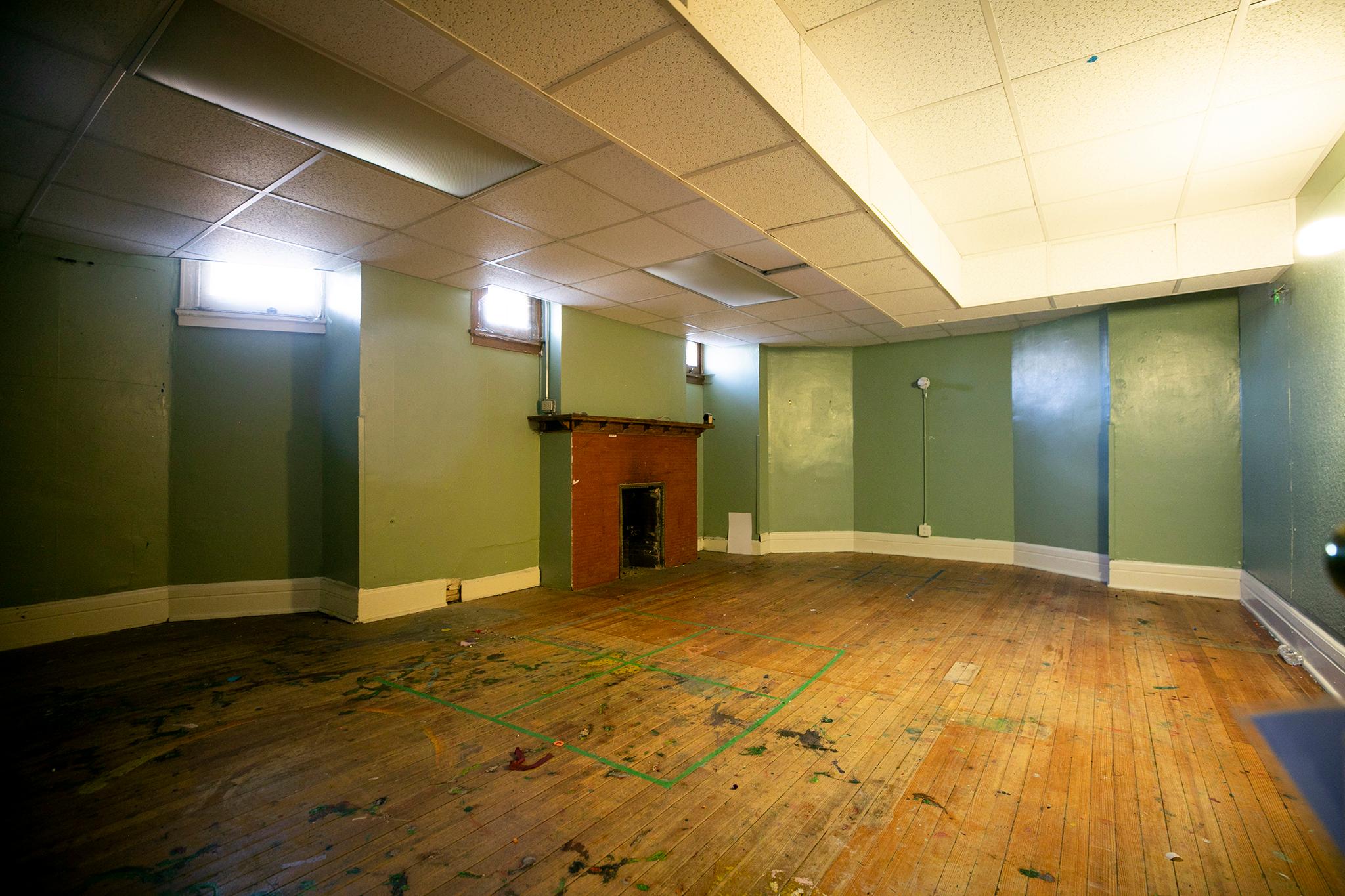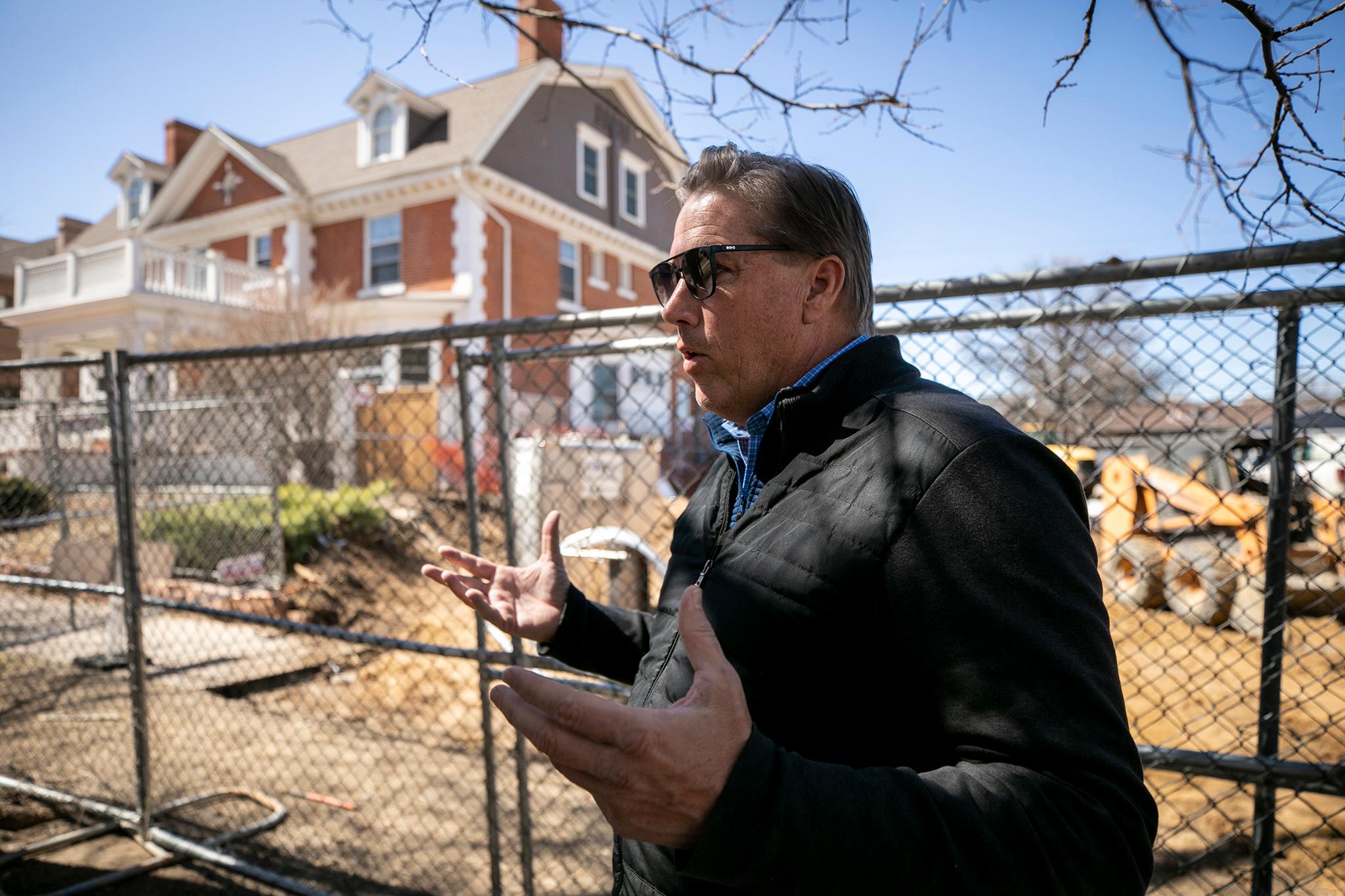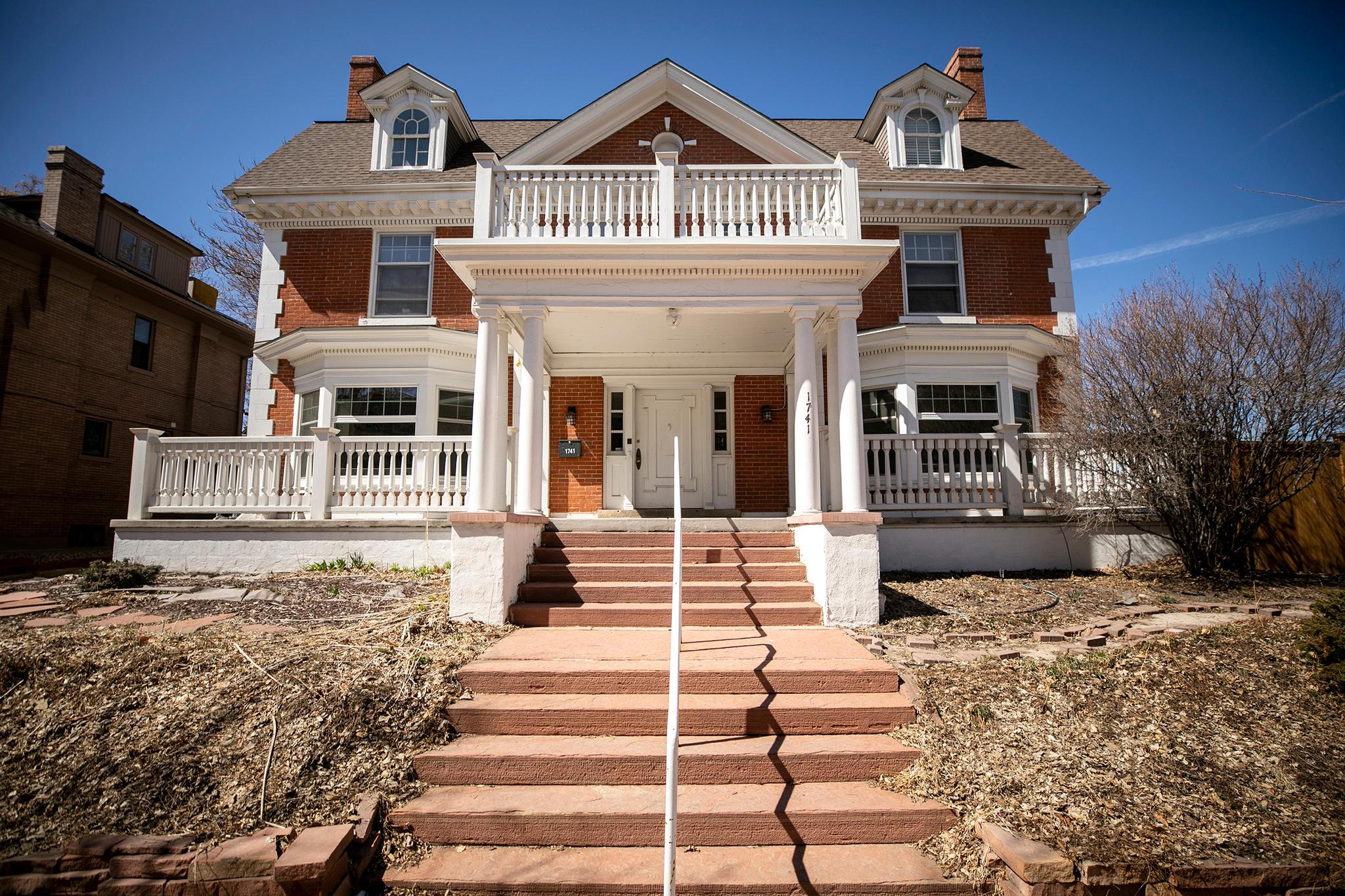City Council voted unanimously Monday night to grant landmark preservation status to 1741 Gaylord St. in City Park West, in a rare owner-opposed designation.
"The demolition application for this property illustrates the flagrant disregard for the people, the culture and the history of our city," said Councilmember Candi CdeBaca, who represents District 9, which includes 1741 Gaylord St. "Many have expressed that this city is losing its soul to predatory development. This property is a perfect example of that assertion on so many levels. We have a developer who can actually look at this building and see nothing but dollar signs."
Some Council members expressed discomfort with supporting preservation over private property rights but ultimately agreed with proponents of 1741 Gaylord St.'s historic value.
"I really struggle with owner-opposed designation, because sometimes it is used by NIMBYs [Not In My Backyard] whose goal is to prevent development," said Councilmember Kendra Black, whose mother grew up in the neighborhood. "However, in this case, the goal is clearly to preserve this beautiful and significant historic house."
The property's owner, Mike Mathieson, wanted to demolish the house and build 37 apartment units and 38 parking spaces.
"There was an emotional groundswell to save the house," Mathieson said after the vote. "Affordable housing doesn't seem to be the priority."
He envisioned them as part of the city's affordable housing options, priced at 80% to 120% of the Area Median Income, and with a certain percentage of units potentially priced cheaper. That means prices would range from about $62,600 to $98,500 for an individual, and $89,400 to $140,600 for a family of four.
With Landmark status passed, Mathieson said he is not yet sure what he plans to do next with the house, but that he plans to look into potential options in the courts to override the decision.
After watching new-build condos popping up across the city, including in City Park West, landmark applicants Scott Holder, Karen Herbert and Peggy Muldoon said they did not want to see another historic home lost. But they pushed back against the narrative that preservation was in opposition to affordable housing, advocating for adaptive reuse of the old home.
"History is being lost permit by permit, as places that tell the community's story are torn down, and there's little left to help new residents understand and appreciate the history of their neighborhood," Herbert said during City Council's hearing about the future of the house. "Denver needs affordable housing, and we want that. We want our neighborhood to evolve and remain relevant to Denver in the 21st century. But we have to address these needs thoughtfully."

The applicants received the support of nonprofit Historic Denver, multiple neighborhood associations and former mayor Wellington Webb.
"We owe it to future generations to leave parts of our past preserved," Webb wrote to Council. "I urge you to save this home. We have enough square concrete buildings."
Opposing petitions circulated the neighborhood: one from advocates to save the house and the other from Mathieson promising more housing and raising concerns about property rights. Mathieson and the applicants went to mediation, but could not find a solution that could accommodate both sides, especially as Mathieson argued that parking spots were needed due to Denver's car-centric layout. When mediation failed, the decision headed to Council.
Mathieson argued that the house does not rise to the level of historical importance.
Research from the Landmark Commission and Historic Denver found that 1741 Gaylord was built in 1902 in the Dutch Colonial Revival style by Gove & Walsh, a prominent architecture firm. Its first owner was Edward Hurlbut, who owned a chain of local grocery stores. Its second owner was James Burger, president of a bank and Colorado Senate member, and his wife Edith Burger, one of the founders of Children's Hospital.
Preservationists say the city's historic researchers are professionals, and that the house meets the requirements for landmark consideration. During Monday's City Council meeting, Landmark Preservation spokesperson Kara Hahn added that women's accomplishments and history, like that of Edith Burger, are often overlooked.
"Oftentimes, it's because women's history and women were involved in volunteer organizations and it hasn't always been deemed as important or valuable as men who had jobs that went to businesses to work," Hahn said.
But Mathieson argued that the property is just an old house and that cities have plenty of hospital founders, bankers, grocery store owners, local politicians and architects.
"We would suggest that the elements can't be fulfilled and there's many other houses that should be landmarked," said owner representative Parker Semler at the Council meeting.

Semler also questioned the authenticity of the Dutch Colonial Revival style, since the house incorporates many different architectural styles. Hahn said the mix of styles is "quintessential" to buildings in Denver and common across Landmark buildings in the city.
There's also the question of how much money it would take to rehab the home. Mathieson said that because the house is so old, it is not set up for contemporary housing units; it only has one kitchen, some rooms are small and others require a lot of renovation work. It was used as recently as 2021 as office and programming space for the family nonprofit Judy's House-but many of the homes on that block from the same era have been converted into office space, rather than housing.
More than two dozen people showed up to advocate for saving the house.
Many people pushed back against the idea that affordable housing and historical preservation are at odds, advocating for adaptive reuse and building on empty lots rather than knocking down houses like 1741 Gaylord St. Others questioned to what extent units at the new building would really be affordable to everyday people living in Denver.
"Compromising to convert the property into apartment units rather than a complete teardown achieves the owners' intention to create density, keeps high quality materials out of the landfill and effectively preserves an icon of American architectural history," said Aubrey Noble. "If we are to move forward into a greener future, it is the job of our community leaders to curb demolition by inspiring property owners to embrace the creative possibilities that exist within adaptive reuse."
Two people spoke in opposition to landmark status; one discussed permitting delays pushing developers to look outside Denver, and the other spoke for the need for more affordable housing and preventing sprawl. Mary Johnston, a real estate agent in the area, said many of the people she works with specifically seek out historic neighborhoods, and that there are opportunities on empty lots and run down buildings to build new apartment buildings elsewhere.
"I'm not against development, I know there's a need for more housing supply, that supply does not have to come at the expense of our city's history and beauty," Johnston said. "There are hundreds of apartment buildings similar to the one proposed in the surrounding area. They're a dime a dozen. There's only 1741 Gaylord."













